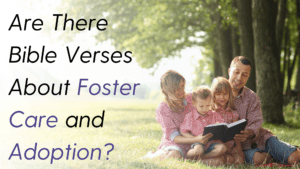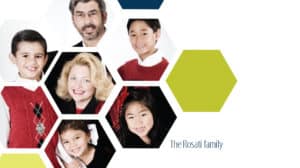After spending time in a children’s home and years in the care of a few foster families, Nick was now 18. He was “free” to choose his path. He was now accountable to no one: he could live where he wanted and do what he wanted. No rules, no deadlines, no obligations to attend church, stay in school, or sit through family meals.
To many young adults, especially at that age, this sounds fantastic. Most children, even in safe and healthy biological families, yearn for the feeling of “freedom”. This crossover to adulthood is exciting.
However, after the initial “rush” of being out on their own for the first time, the demanding realities of being an adult quickly accumulate. Finding a job, paying rent, managing transportation, buying food – it all becomes overwhelming. This is especially true for the approximately 23,000 youth who “age out” of the U.S. foster care system every year at 18 years of age. Without a consistently stable home experience or a healthy network of relationships to turn to, these children often begin to seek security from unreliable sources. Sources such as unhealthy relationships, substance abuse, and crime.
Here is the reality for these 23,000 youth: 20% will instantly become homeless; fewer than 3% will earn a college degree; 70% of young women will become pregnant before they turn 21; nearly 60% of young men will be convicted of a crime.

Why do so many 18-year-olds coming out of foster care fail to navigate this important phase of life, and what can we do about it?
In my experience from working with youth at Palmer Home for Children, I’ve identified three key reasons. By working together, we can change those discouraging statistics.
1. 18 is not a magic number.
In the United States, the chronological evolution of a child to an “adult” is fairly discernible. Turning 18 is the trigger. By law, an 18-year-old is eligible for the draft. They can vote in elections, and most leave home for the first time. Despite the cultural assumptions that this is a crossover age, the emotional journey to adulthood is still a work in progress. Most youth will likely require time and patience – especially youth who’ve grown up in unstable environments.
We cannot expect youth coming out of foster care to instantaneously “grow up” and be responsible simply because they’ve turned 18. It’s not a magic number. Even children in foster care who have demonstrated confidence or success in high school often struggle when they find themselves in a brand-new world and wake up alone. The cumulative years of trauma and instability catch up with them. Fear and uncertainty creep in. And though they may appear brave on the outside, they are lonely and unsure of how to move forward.
For these young adults, our expectations must be seasoned with grace. How can they learn to be successfully independent unless we intentionally and patiently teach them? We need to consider their whole story, meet them where they are in their emotional development, and come alongside them to show them a different path.
2. This has been a blind spot for the Church.
Does your church have a dedicated ministry devoted to helping and partnering with foster care youth who have aged out? Neither does mine.
It’s possible we miss this group because we see young adults as fully accountable. But, as we just discussed, their journey is ongoing, and grace is required. It’s also possible that our own standards cause us to have an unconscious lack of empathy for a young adult that is drifting. Questions such as, “Why aren’t they working?“ Or, “Why did she drop out of school?” Even, “Why isn’t he embracing ‘adult’ responsibilities?” Let’s face it, the “Protestant work ethic” that dominates our culture often causes us to judge situations we may not fully understand. Have we forgotten the support, connection, and safety our families and other supportive adults provided us, empowering our own path forward?
The Church can help.
The Church is uniquely positioned to help vulnerable young adults because we have what they need most: safe homes, connection, and the ability to support them in simple ways that can make all the difference! Above all, we have the opportunity to demonstrate the same love for them that God has shown us.
You are equipped to help a young adult during this difficult season if you have one of the following: the capacity for friendship, time for a weekly coffee or meal, a home or apartment to provide as a safe meeting place, a phone to be accessible for conversation, or expertise in finance, life skills, resume building, etc. These simple things become powerful in the work of helping at-risk youth overcome the odds against them.
When the Church begins to prioritize this population, we will see great change. We can break generational cycles and give life to so many wonderful but struggling young people. The need is great, but our capability to serve is even greater.
3. Traditional models of care need to adapt.
Historically, organizations in the United States were designed to provide care until the age of 18. Many faith-based programs, including Palmer Home for Children, where I work, have only recently reorganized to serve youth beyond the age of 18.
For families, churches, and organizations dedicated to caring for vulnerable children, realizing that much of the work does not yield the desired outcome once youth become adults is hard to accept. We have poured resources, prayer, and passion into helping younger at-risk children, but however much we offset the instability in someone’s childhood, statistics are telling us, their future will be even harder. But this can change.

Given what we now know about the outcomes, we must revisit our service models and identify solutions for this age group. Committing to a child’s well-being until they are successfully independent is tough but mandatory. It may involve engineering new services within the current program, partnering with other programs, or simply conducting a self-evaluation. Helping young adults navigate a path to true independence must be the goal, and if necessary, our models must adapt.
The good news!
It’s happening! Across the country, where safety, support, and connection are taking hold, stories of success, faith, and the commitment to see children through this challenging period are emerging.
In 2018, at Palmer Home for Children, we launched a transitional care program to serve young adults ages 18 to 24 years old. In our program, we walk alongside each child and give them support and guidance as they gradually grow in independence. Unlike Nick, who we introduced at the beginning of our story, the children in our program have a strong support system to help them navigate this new chapter.
We are already seeing positive results. Of the 21 children we are currently serving in our transitional care program, nine children are currently enrolled in college. Ten have found or maintained steady employment. And four are living completely independently – living on their own and paying their own rent, but still leaning on our case managers for guidance when needed. Yes, the youth we serve have bumps and struggles like everyone else, and we are just getting started on this new initiative, but we are learning what it takes to see them through to independence.
Imagine how different the dismal statistics stated earlier would be after a few years if we made a concerted effort to serve these youth. Together, we can help these thousands of children who’ve “aged out” of foster care live healthy, independent lives.




















